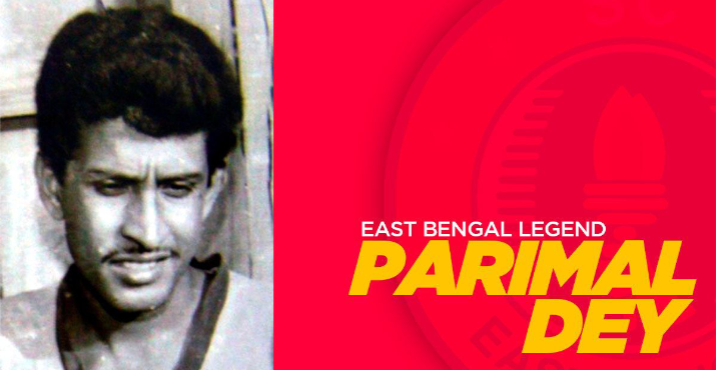
After a long period of severe illness, Parimal Dey, a former football player for India and Banga Bhushan recipient, died today at the age of 81 in Kolkata.
Parimal Dey, a former football player for India, passed away on Wednesday at the age of 81 following a protracted illness. The great player’s passing was mourned by the All India Football Federation (AIFF). The death of former India ace Parimal Dey, according to AIFF president Kalyan Chaubey, is a significant loss for Indian football. Dey, also known as Jangla-da, was one of the best Indian schemers of the 1960s, according to Kalyan, and he continues to have a special place in the hearts and minds of his followers.
Dey, who was born on May 4th, 1941, received the Banga Bhushan honor from the West Bengal government in 2019, following his retirement from professional football. The talented player represented India five times during his golden years in the 1960s, and in the bronze-medal match of the 1966 Merdeka Cup in Kuala Lumpur, he scored the decisive game-winning goal against the Republic of Korea.
Bengal won the Santosh Trophy twice in 1962 and 1968 under Dey’s guidance. Dey has the distinction of having won both the Calcutta Football League and the IFA Shield twice, in 1966, 1970, and 1973. He also made his mark on Indian football lore by scoring in both of the IFA Shield finals, against BNR (1966) and the Iranian team PAS Club (1970), which was also the quickest goal scored by a player who entered the game as a substitute in the IFA Shield final.
Parimal Dey left behind an everlasting legacy
The East Bengal club’s most glorious era, according to some, was from 1970 to 1975. The Red and Golds had won 20 awards overall during those six years, including a record-breaking six straight Calcutta Football League (CFL) championships, surpassing Mohammedan Sporting’s five straight CFL victories (1934-38). The purple patch began when the team defeated Iranian powerhouse Pas Tehran FC 1-0 in the IFA Shield final in 1970.
The Kolkata side finished with a memorable victory thanks to Parimal Dey’s lone goal. When Dey was unmarked, Swapan Sengupta fired a cross for him after sprinting down the right and beating the left defense. The entire Eden Gardens went into a frenzy when Parimal cushioned the ball with a superb first touch and sent it beyond the reach of PAS’s goalie.
At the time, Iran was one of the strongest teams in Asian football, which was an admirable accomplishment for Parimal and the Red and Golds. Oddly, Dey did not even make the starting lineup for that game and entered the game when Md. Habib had an injury around the 85th-minute mark. 60 After Habib hurt himself, captain Shanto Mitra is said to have urged coach Mohammad Hossain put on Dey.
The Red and Gold players gained confidence and belief after their thrilling victory over a formidable foreign foe, which helped them rule Indian football for the following six years. Because they experienced unmatched success, East Bengal supporters affectionately refer to the 1970s as their Golden Era.
Their unmatched supremacy over Indian football also extended to their games against Mohun Bagan, their bitter rivals. In addition to this, he also took home victories in the Rovers Cup (1967, 1969, 1973) and the Durand Cup (1967, 1970). Dey continued his career by joining Mohun Bagan in 1971, a year in which they won the Rovers Cup once more.
